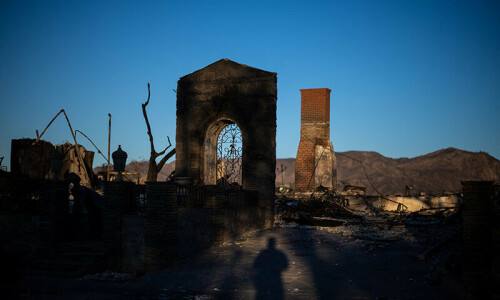A FURIOUS debate is raging over the ICJ ruling against Israel, and whether it falls short of expectations by not explicitly calling for a ceasefire; certainly, it seems that most Palestinians who are facing the daily depredations of a genocidal Israel and its Western partners in crime have called the ruling unsatisfactory to say the least.
Leaving the nuances of the judgement for wiser minds to speak on, what was curious to me and many others was the sole judge who ruled against every single provision, including that of providing humanitarian aid to Gaza, something that even the Israeli-origin ICJ judge did not.
That judge was Julia Sebutinde of Uganda, the first female African judge to sit in the ICJ. In her dissenting opinion, she ruled that the “dispute” between Israel and the Palestinians was primarily a “historical and political” one and thus beyond the jurisdiction of the court, an opinion with which the bulk of the other judges disagreed. She went so far as to say that Israel’s massacres were not “committed with the necessary genocidal intent”, which leads one to believe that the worthy judge is willfully deaf and dumb and hadn’t seen a single statement from Israel’s leaders or even the TikTok videos posted by Israeli occupation forces.
What could possibly explain this? Before going into that, one must note that — while all courts are political to one extent or the other — this is particularly true of the ICJ, and the judges that sit there are, to varying degrees, influenced by not just personal ideology but also the prevailing political situations, and foreign policy planks, of their home countries.
One judge said that Israel did not act with genocidal intent.
Uganda has had turbulent relations with Israel over the years; during the bloody reign of Idi Amin, ties with Israel were broken off and in 1976 a passenger plane going from Tel Aviv to Paris was hijacked and brought to Uganda’s Entebbe airport, an action supported by Amin. Then followed the Entebbe raid by Israeli commandoes, which led to the rescue of 102 hostages. Kenya provided support for the operation; in retaliation for the humiliation he suffered, Idi Amin ordered his army to massacre Kenyans living in Uganda, killing close to 300, and forcing thousands to flee.
From this low point, Ugandan relations with Israel improved and have reached their zenith under the current president, the autocratic Yoveni Museveni, who restored full ties in 1994. Today, Israel has a considerable footprint in Uganda and Israeli companies operate in the fields of construction, communications, IT and agriculture, to name just a few. There is also considerable military cooperation between the two countries.
Public opinion in East Africa regarding the Israel-Palestinian conflict has historically been divided along religious lines, and generally speaking Muslims in this region tend to be supportive of Palestine while certain Christian churches (more on this later) have tended to favour Israel. Attacks by Al Shabaab and Al Qaeda affiliates in Kenya in particular, have also polarised and coloured views when it comes to Hamas and Palestine.
Michael Bishku, a professor of Middle Eastern and African history points out that in East African countries that possess a relatively democratic character, like Kenya and Tanzania, public opinion does tend to inform the stances taken by government. In the case of Kenya, President William Ruto initially strongly condemned Hamas, but later modified his tone by also condemning Israeli occupation and calling for a free Palestine. Even in autocratic Uganda, where public opinion counts for less, we have seen the government take pains to establish that Sebtinde’s ruling does not represent their official position.
One cannot glance into Sebtinde’s mind and discern her motivations, but given her approach one can somewhat safely assume that there is another factor in play when it comes to her blind support of Israel, and this is the increasing role of US-based evangelical churches in East Africa.
Over the years, these churches have poured millions of dollars into these largely impoverished countries, seducing people with their ‘prosperity doctrine’ which “links faith in God to financial success”. A decade ago, it was estimated that 30 per cent of Uganda’s Christians (who form 85pc of the population overall) had joined evangelical movements and that number is likely far higher now. All these groups, minor doctrinal difference notwithstanding, are fanatical Christian Zionists who believe that the messiah will not return until the Temple of Solomon has been rebuilt and that Israel’s absolute victory is a perquisite for that. After that, of course, all the Jews will be slaughtered or converted to the ‘true faith’ but for now, these groups are tactically allied to the Zionist regime.
The writer is a journalist.
Published in Dawn, January 29th, 2024










































Dear visitor, the comments section is undergoing an overhaul and will return soon.